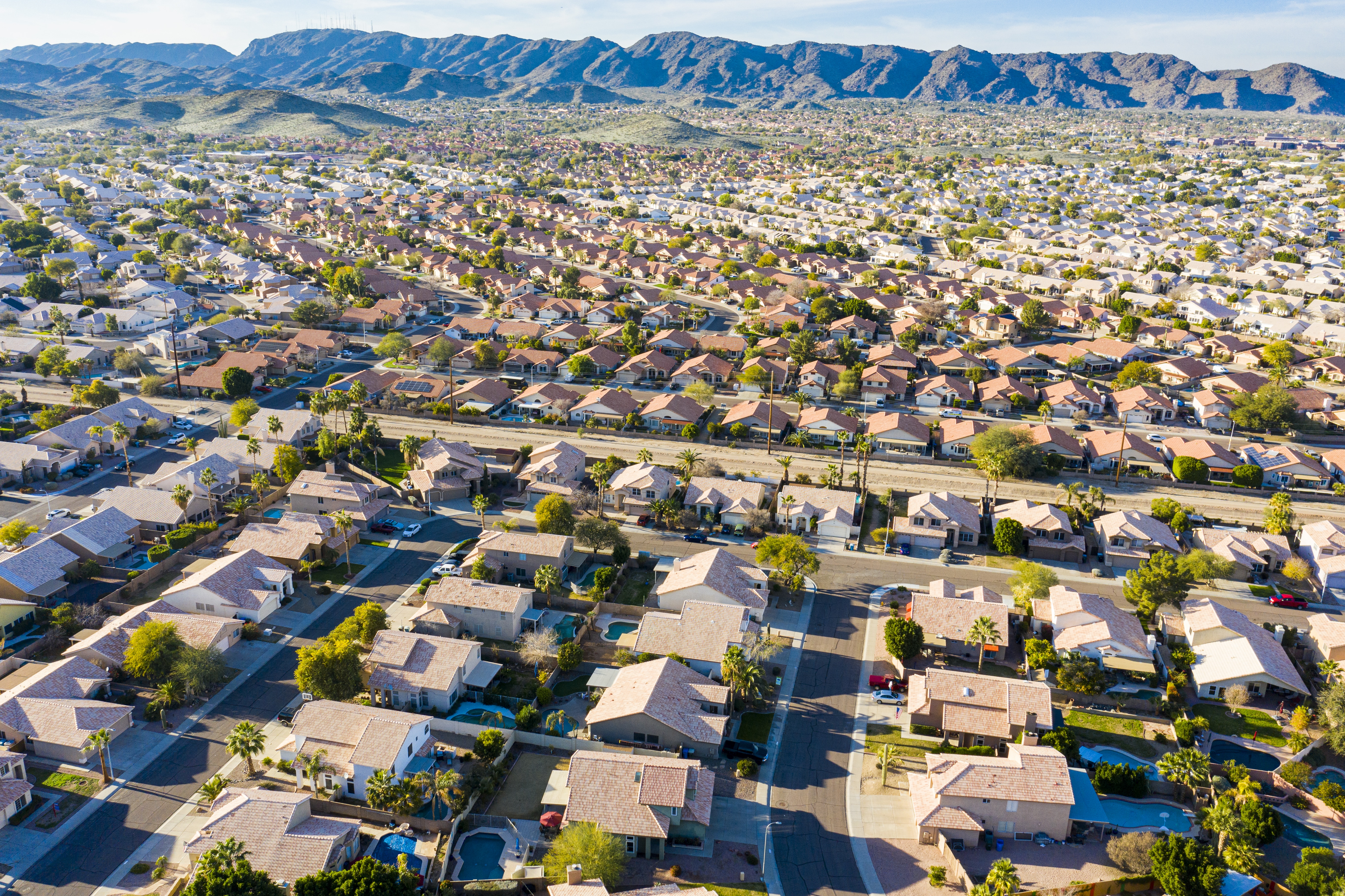Zoning laws place restrictions on how people can use real estate that they own. These ordinances regulate all aspects of your property. For example, zoning laws govern how you can use a piece of property, what you can build on it, how you can build on it, and where you can build on it.
Local Zoning Laws
Every city and county in Arizona has different zoning and land use ordinances. Although these ordinances vary widely from one jurisdiction to the next, they typically divide the jurisdiction into different sections or “zones.” Each zone contains property designated for use as business, residential, commercial, or a combination of one or more of these classifications. While some zoning laws are relatively lax, others are pretty strict and prohibitive.
The city of Scottsdale has a comprehensive Zoning Ordinance that addresses many different aspects of property use. For example, Sec. 7-104 places height limitations on walls, hedges, fences, and landscape materials and structures on corner lots. Sec. 7-200 places various limitations on residential homeowners, such as covered porches extending no closer than ten feet from the rear property line and chimneys projecting no more than two feet into the required yard from the home. Other zoning ordinances govern the height of fences and where homeowners can build those fences on their property.
Variances and Zoning Laws
If landowners wish to use their property in a way that the local zoning ordinance does not permit, they can apply for variances. A request for a variance typically involves a “use” variance or an “area” variance. As its name implies, a “use” variance grants permission for the property owner to use the property in a way that zoning laws do not permit. An “area” variance allows the property owner to build structures or have other features on their property that violate certain aspects of zoning law that have to do with space or area. For example, typical “area” variances concern setback and frontage requirements, height limitations, and yard requirements.
Generally, petitions for “area” variances tend to be more successful than applications for “use” variances, although approval of variances may vary widely from one jurisdiction to another. Whether to grant a variance is entirely up to the discretion of local zoning authorities in the relevant city or county. Although there are no guarantees and jurisdictions may differ, you generally must show the following for a successful variance petition:
- A hardship exists that is not self-imposed
- You own unique or special land that is not common to the land around you
- The variance is necessary to protect your property rights, and
- The variance would not change the nature of the neighborhood or cause an undue hardship to property owners around you
For instance, Sec. 1.804 of the Scottsdale Zoning Ordinance states that a variance will not be granted unless the Board of Adjustment finds sufficient evidence of the following factors:
- Due to particular circumstances with the property, strict application of the zoning ordinance will deprive the property of privileges enjoyed by other properties of the same classification in the same zoning district
- Authorization of the variance is necessary to preserve those privileges and rights and does not constitute a grant of special privileges inconsistent with the limitations upon other property in the same location and zone
- Particular circumstances were not self-imposed or created by the property owner
- The variance will not be materially detrimental to persons residing or working in the vicinity, to nearby property, to the neighborhood, or to the public welfare in general
Enforcement of Arizona Zoning Laws
If property owners don’t follow zoning laws, they can face fines and penalties. In addition, when property owners violate zoning laws, cities or counties can file civil lawsuits against them to enforce the zoning laws. For instance, in the city of Scottsdale, Sec. 1.1402 of the Basic Zoning Ordinance, a court can impose a civil sanction of between $500 and $2,500 for a zoning violation.
These lawsuits can end up being quite costly for property owners. Not only can they face extensive fines and penalties, but they may have to dismantle structures built on their property.
Contact Us Today for Help with Your Zoning Law Issues
The real estate attorneys of Provident Law have over 250 years of combined legal experience. Our goal is to build a relationship with you and our clients as we work with you through your most complex legal problems. Call us today at (480) 388-3343 or fill out our online contact form and see what we can do for you.


